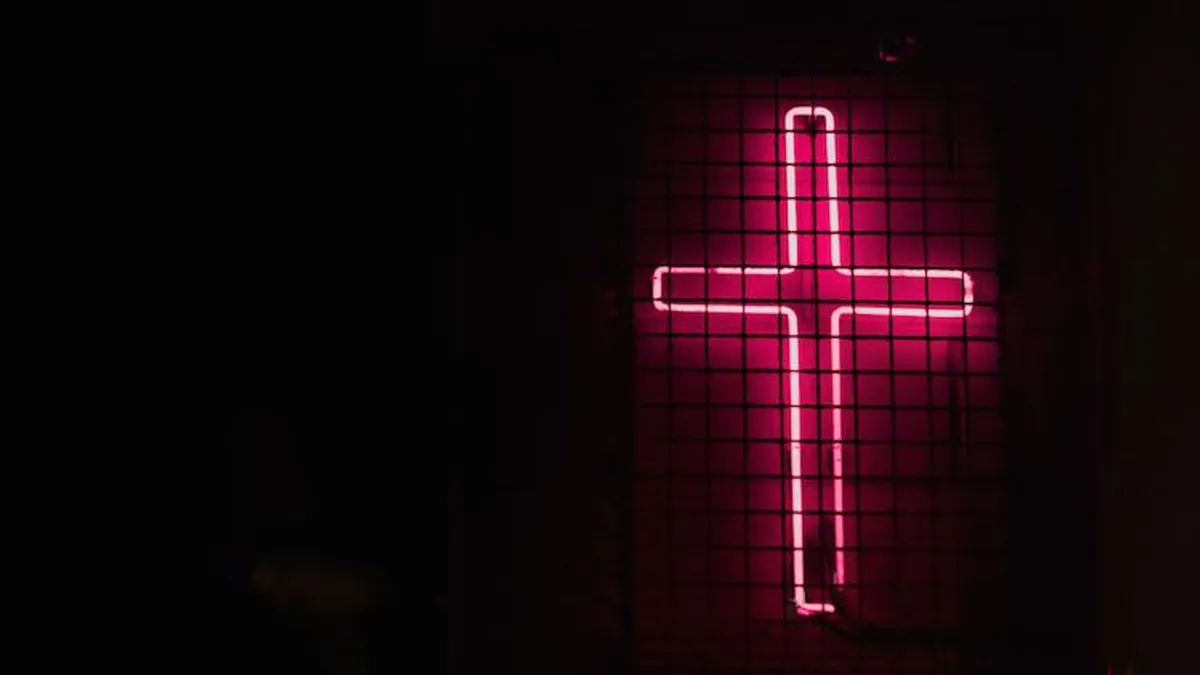Lifestyle
Growing Up Southern Baptist and Finding My Queer Identity

Sean Mungur/Unsplash
I left Christianity but still respect it.
December 07 2018 4:31 PM EST
May 31 2023 5:32 PM EST
By continuing to use our site, you agree to our Private Policy and Terms of Use.

I left Christianity but still respect it.
I was probably 12 years old when I realized my religion didn't accept me.
While I grew up in Southern Baptist circles, my parents weren't active churchgoers. But in Jackson, Mississippi, children couldn't quite grow up without the interference of Christianity. Vacation bible school and youth service were common among my peers. In my town, there was The 180, a former conventional skating rink that had been converted into a massive social space for teens and preteens to skateboard, play pool, eat a burger, and praise Jesus at youth-oriented services.
During one such service, a man asked us to raise our hands if we had not been saved. I raised mine. Before I left, he escorted me and a few others into a room where he "saved" us. I wasn't quite sure what he was saving us from, but he told us all we had to do now was to ask forgiveness and our sins would be washed away.
Apparently, no matter what I did to right the wrongs in my life, it didn't matter if I didn't ask for forgiveness. This sudden realization felt like I was constantly being watched and judged. And there are so many sins to keep up with, I frequently found myself fearing eternal damnation. So it became a nervous tick to recite to myself, "Please forgive me for my sins, Lord. In your name I pray, amen."
Around this time, I asked my mom to buy me this bible for teens from Walmart. It was a paperback with footnotes that explained Bible verses in terms that our little brains could comprehend. When I got home, I flipped to the index at the back and found "homosexuality." It led me to a couple of ambiguous verses that plenty of self-proclaimed Christians consistently use to oppress LGBTQ people. And in the footnotes, it said something to the effect of, "Don't fool yourself. Homosexuality is a sin. Any act on same-sex desires will surely be judged in the end."
As a pubescent closeted queer boy, this was quite the time to learn that the things coming so naturally to my mind were sinful. I looked for ways to change myself, but it felt useless. I remember seeing But I'm a Cheerleader, and thinking maybe there's hope if I can find a place like this.
But as I began discovering myself, both mentally and physically, I started to truly understand shame. I began masturbating about as frequently as I ate, which as an adolescent boy was a lot. And everytime I finished, the act was immediately followed with an unwavering sense of self-loathing.
"Please forgive me for my sins, Lord. In your name I pray, amen."
At some point in my late teen years, I found the courage to come out. Even though I still considered myself a Christian, I knew it was the only way I'd be happy. I was no longer going to church, but I tried to live by what I thought it meant to be a Christian.
As a queer Christian, I looked for other progressive Christians who could help me debunk these centuries-old verses that so many believed to denounce my identity. There were plenty just like me, seeking those same answers, defining God's words as all-loving and therefore accepting of queer people.
But I still found the bible consistently thrown in my face as justification for homophobia, racism, war, and all the other atrocities that right-wing America continues to commit. I'd tell my queer friends that those people aren't real Christians. That's not what Christianity is about.
It wasn't until I discovered Safe Harbor Family Church when I was back home in Jackson for an extended stay, that everything fell into place. This beautiful congregation was made up of mostly queer people that did not feel welcome in other religious spaces. They'd been discreetly meeting since the '90s, providing a safe space for queer Christians and their allies.
The people there took me in with open arms and treated me like one of their own. But as I sat through the service, I began to see things in a different light. It was the first time I'd seen my own spirituality through an objective lens. I was sitting in a pew as a pastor read centuries-old bible verses to us like a children's book.
This was what I was supposed to shape my life around, an intangible, unproven concept thought up by people who are no longer around to defend it. And for centuries, it's hurt more people than it's helped.
I consider myself to have a pretty decent moral compass, I know right from wrong. And I can believe there might be a higher power, whether it's God or nature, but how am I supposed to blindly say I know what it is? Is this God such a narcissist that every good thing you do has to be out of your devotion for him or her, instead of just doing it because it's the right thing to do?
I admire anyone with strong moral convictions, regardless of what religion they may or not be in service of. But I've finally come to the realization that I'm not a Christian, as much as that might break my mother's heart. It feels like coming out all over again.
As a 27 year old queer atheist, I still frequently find myself asking forgiveness for my sins. It's a habit. But it also let's me know that my moral compass and whatever qualities I wished to preserve from my former Christianity are still intact.